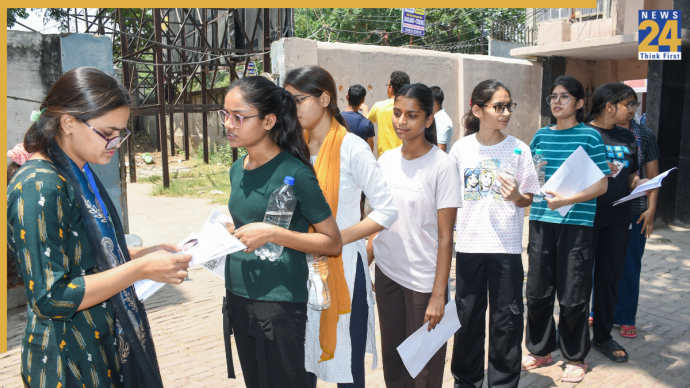A multifold spurt in fresh COVID cases was noted in India over the past 24 hours, with Kerala contributing the major chunk of those. A total of 423 cases were reported of which 266 were from Kerala and 70 from neighbouring Karnataka, Union health ministry data showed. Two deaths were reported in Kerala.
Be cautious, don’t panic
The total number of active cases of Covid-19 in the country was recorded at 3,420. Meanwhile, amid rising concerns over the emergence of the new variant of the coronavirus, former World Health Organisation (WHO) chief scientist Dr Soumya Swaminathan asserted that there is no need to panic currently as it is a variant of interest and not of concern. However, she urged people to be cautious by taking proper precautionary measures.
देश में कोविड मामले एक दिन में डबल हुए, 752 नए मामले, 4 लोगों की मौत हुई
---Advertisement---◆ कुल मरीजों की संख्या 3,420 हुई #Covid | Covid | #Corona | Corona pic.twitter.com/JZ1lsJ5AXx
— News24 (@news24tvchannel) December 23, 2023
Speaking to ANI exclusively, Dr Soumya Swaminathan, former DG, of the Indian Council of Medical Research (ICMR) said, “We need to be cautious, but we don’t need to worry because we don’t have any data to suggest that this variant JN.1 is more severe or it’s going to cause more pneumonia, more death.”
Increase in infection, decreased death rate
The number of new COVID cases increased by 52 per cent during the past four-odd weeks, the WHO said, with over 850,000 new cases reported during the period. The number of new deaths decreased by 8 per cent as compared to the previous 28-day period, with over 3,000 new fatalities reported, World Health Organization (WHO) said in its latest press release.
As of December 17, over 772 million confirmed cases and nearly seven million deaths have been reported globally since the onset of COVID-19, the WHO noted.
Global figures
Further, the WHO said over 118,000 new COVID-19 hospitalizations and over 1600 new intensive care unit (ICU) admissions have been recorded, with an overall increase of 23 per cent and 51 per cent, respectively, globally.
Due to its rapidly increasing spread, WHO is classifying the variant JN.1 as a separate variant of interest (VOI) from the parent lineage BA.2.86. It was previously classified as VOI as part of BA.2.86 sublineages.
Based on the available evidence, the additional global public health risk posed by JN.1 is currently evaluated as low. Despite this, with the onset of winter in the Northern Hemisphere, JN.1 could increase the burden of respiratory infections in many countries. The WHO had earlier said it was continuously monitoring the evidence and would update the JN.1 risk evaluation as needed.
(with inputs from agencies)













